|
Oh, I hope this doesn't come off sounding like a rant. Because I'm talking technology here, and that's a subject that can easily inspire wrath.  Dealing with technology can make you tear your hair Dealing with technology can make you tear your hair I know you've all got your own hair-tearing stories. Me, I've been dealing with a balky internet connection for a several days. Thanks to a lengthy phone session with a charming and patient young tech support guy named Brandon (I'm confident saying "young," because Brandons, Ethans, and Austins are always young, right?), it's working again. Sort of. Sometimes. These bollixes never happen on days when my online needs are purely recreational. It's always when I'm trying to do Important Things. In this case, I had spent weeks polishing submission materials and was all fired up to start sending out queries to a painstakingly-researched selection of literary agents, hopeful that the just-right agent that I know is out there will offer to represent me and my memoir, Mango Rash: Survival Lessons in the Land of Frangipani and Fanta.  I could use a key like this I could use a key like this Now, however, the time I'd planned to devote to that endeavor is being eaten up with tech support, shut-downs, and reboots. I could go on—and on, and on—venting about my particular problem, but that's really not my purpose in this post. Instead, what I want to discuss is how technology affects our lives when our devices and connections are working just fine. I've been considering this matter more than usual after coming across several articles on the subject. 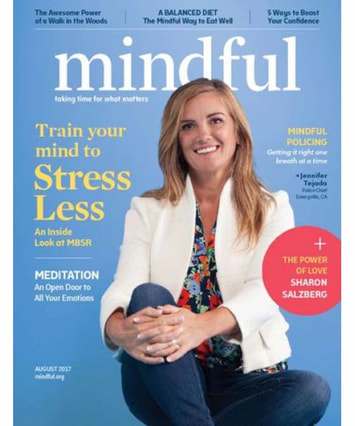 Mindful magazine Mindful magazine One, titled "Smart Phone, Lazy Brain" grabbed my attention with its title. Written by science writer Sharon Begley and published in Mindful magazine, the article describes a number of studies aimed at understanding how all our Googling, surfing, and flitting from app to app affects our brains, as well as our productivity and creativity.  Should you Google the Google Effect? Should you Google the Google Effect? Perhaps you've heard of the Google Effect? If you can't quite remember what that is or where you heard about it, just Google it. Ha! Gotcha! Instead of wracking your brain for that information, you let Google do the work. In the process, you undermined your ability to recall a week from now what you just looked up. That's because when you use your brain to remember things, you follow a path of mental stepping stones. Every excursion down such a pathway strengthens connections between neurons and makes future travels on that path go more smoothly. As Begley puts it, "The very act of retrieving a memory therefore makes it easier to recall next time around. If we succumb to the LMGTFY (let me Google that for you) bait, which has become ridiculously easy with smartphones, that doesn't happen."  Workers can't resist the attraction of social media Workers can't resist the attraction of social media Then there's the matter of attention. Begley cites this astonishing statistic: Computer users spend an average of only three to five minutes working on an actual task before peeking at Facebook or some other appealing website. Such fractured attention makes it difficult to accomplish anything. Yet ignoring those tempting distractions saps brainpower, too—the same kind of brainpower needed for judgment and problem-solving. 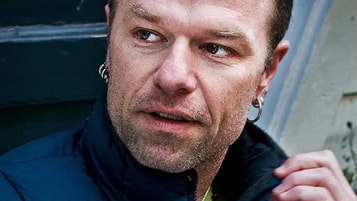 Stephen Elliott Stephen Elliott What to do? Author Stephen Elliott took the drastic step of disconnecting from the internet for a full month and described the experience in an article in Poets & Writers magazine. First came a period of withdrawal, quickly followed by crushing boredom. "I realized I hadn't been bored in years because I'd gotten in the habit of never giving myself the chance," Elliott writes. 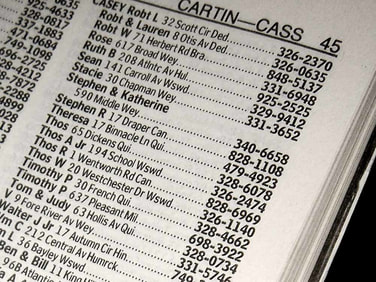 Boring, but creativity-enhancing Boring, but creativity-enhancing Avoiding boredom may sound like a good thing, but boredom leads to daydreaming, which enhances creativity, research shows. In one study, subjects who were bored did better on creativity tests than participants who were relaxed, elated, or distressed. In other research, half the participants were asked to copy numbers from a phone book, while the other half were spared the dreary task. Then both groups were given a creativity exercise. Who came up with most creative solutions? You guessed it: the ones who'd been given the boring chore beforehand.  Staying offline frees up time for reading books Staying offline frees up time for reading books Elliott didn't resort to copying phone numbers to fill the time he'd previously spent online. Instead, he found himself spending hours absorbed in activities he'd been too scattered to engage in before: reading the New York Times cover to cover, tackling challenging books, writing for hours without interruption. "I could feel my attention span lengthening," he writes. "I would think about problems until I figured them out." Eventually, Elliott got back online. The 370 emails that had accumulated during his month of disconnection were mostly junk, but he did appreciate having once again an easy way to promote a fundraiser he was hosting and communicate with contributors to an anthology he was editing. Still, he didn't plunge right back into his old habits. He came up with some guidelines for himself and anyone else who wants to rein in the constant-connection habit and actually get something done:
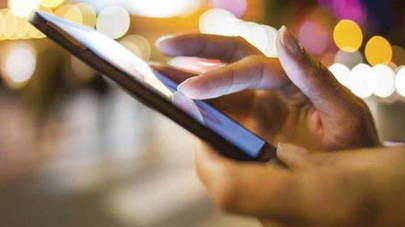 Connectivity goes where you go Connectivity goes where you go As for that smartphone that's become like an extra appendage, you don't have to give it up. Just pay attention to how you're using it, suggests University of Michigan psychology professor Ramaswami Mahalingam. His research, featured in a recent article in U-M's LSA Magazine, shows that whether your smartphone use affects your life positively or negatively depends on how mindful you are when you're using the device. "On the one hand, there is a humanistic impulse to say, 'Oh, it’s awful. The machines are in control,'" says Mahalingam, who teaches an undergraduate course in mindfulness. "But the challenge lies in creating an awareness about how you think about everything, so when you do something habitual you become much more aware of it. As you become more deliberate, you use the phone more deliberately, too."  Apps can make us more aware of kindness and generosity Apps can make us more aware of kindness and generosity He recommends loading apps that prompt you to notice and record thoughts, feelings, and things happening around you, especially instances of kindness and generosity. Students who do this find themselves feeling less compelled to look at their phones. That frees up their brains to think about other things and have deeper face-to-face interactions.  Mindful use of technology can foster interconnection Mindful use of technology can foster interconnection "Ultimately," says Mahalingam, "technology creates a broader set of tools to foster interconnection. It should help us see the expanse of who we are, and to adapt to changes with magnanimity and grace." Is technology a tool or a trap for you? Have you made any changes in your online habits? How's that working for you? All images used with this post are stock images.
10 Comments
Laura
12/6/2017 06:31:49 am
When I had a blog I was online all the time, and started using Facebook in unhealthy ways and felt depressed. Now I consciously limit my online laptop time and my searching, because it interferes with writing. The biggest challenge, however, is my phone! I have a really hard time not checking it constantly. I've taken small steps to correct this. This blog post is a good reminder to work on thisI'd love to hear how people broke the phone checking habit.
Reply
Nan
12/6/2017 08:54:44 am
Good for you, Laura. I've been trying to limit my online time, too, and I can really tell a difference in how much I get done when I manage to do that. As for the phone habit, my solution is: don't have a smartphone. I got along without one for all those years before they were invented, and I'm still getting along fine without one. I do have an iPod that has apps on it, but I rarely use the apps.
Reply
Sally Pobojewski
12/6/2017 01:19:50 pm
Excellent topic, Nancy!! I don't have a smartphone either - just a simple flip phone. My grown children cringe when I pull it out of my pocket. My son even gave me his old smartphone, so all I have to do is switch over my account. I still haven't done it, though.
Reply
Nan
12/14/2017 11:50:08 am
I wonder how many of us closet flip phone users are out there. It is kind of embarrassing to use them in public Thank goodness I have an iPod that I can pretend to talk on - ha!
Reply
12/7/2017 04:19:36 am
Thought provoking, thoughtful and helpful article, Nan! I appreciate the suggestions for how to better manage the technology we use, and I'll try some.
Reply
Nan
12/14/2017 11:50:54 am
I'll be interested to hear how that goes.
Reply
Laura Bailey
12/7/2017 05:18:42 am
Interesting about the "non-smart" phones! I am going to try to limit my smart phone use and if that doesn't work, I'm getting rid of it. I use it a lot for audiobooks, too, which I love. So I'd really miss that.
Reply
12/9/2017 05:01:18 am
Hi Nan. I know when we travel and I don't have Internet access, I feel like I have lost my right arm. hee hee. I have a little smart phone with slow connection, so I don't use it. I'm afraid if I did, I'd be one of those checking it every few minutes. I don't think people are aware they are spending so much time on their phone. It's difficult to see it yourself. We were sitting in the eye doc's waiting room, and a man played a game on his with volume turned up. Talk about annoying! He was oblivious to everyone around him. When I'm not working on a project, I do limit my time on the Internet, especially that darn Facebook that sucks me in every time. And I don't use Pinterest anymore. Talk about a time-waster. Excellent article that really helps make one re-think their usage of this technology. Thank you.
Reply
Nan
12/14/2017 11:48:12 am
I took one look at Pinterest and vowed never to return. I could see the suck-in potential!
Reply
Leave a Reply. |
Written from the heart,
from the heart of the woods Read the introduction to HeartWood here.
Available now!Author
Nan Sanders Pokerwinski, a former journalist, writes memoir and personal essays, makes collages and likes to play outside. She lives in West Michigan with her husband, Ray. Archives
April 2022
Categories
All
|
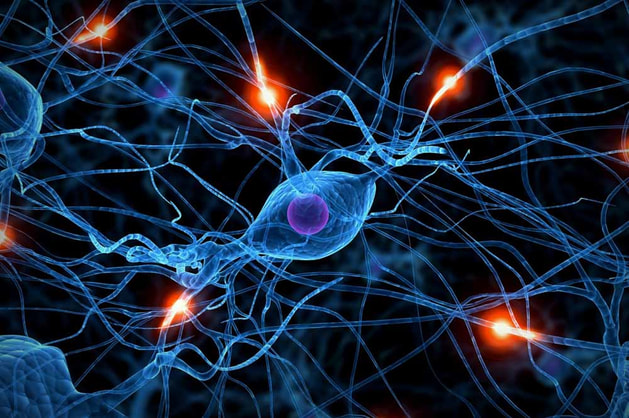

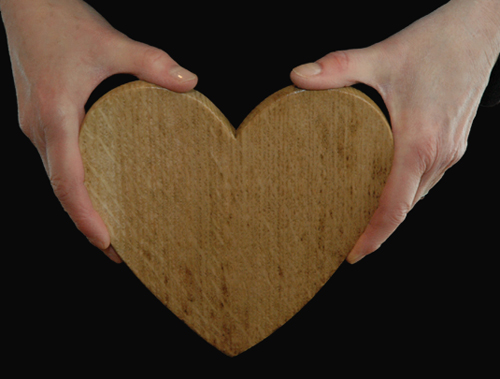

 RSS Feed
RSS Feed